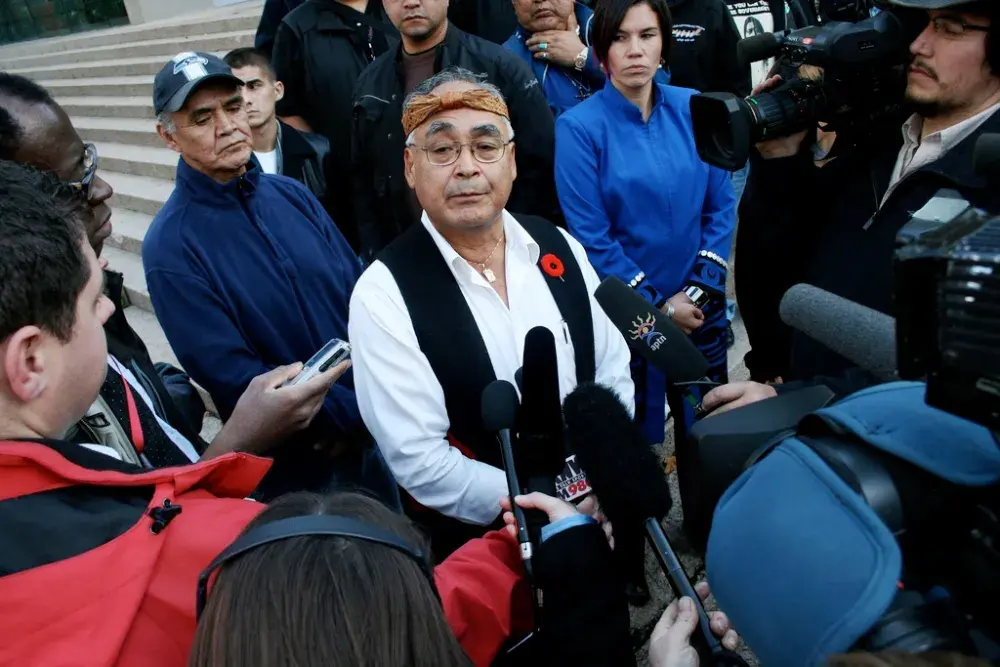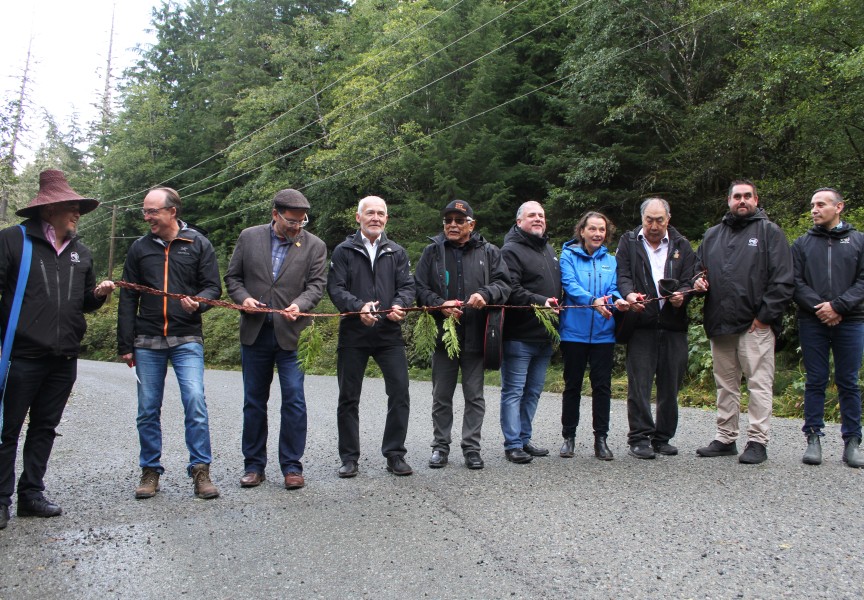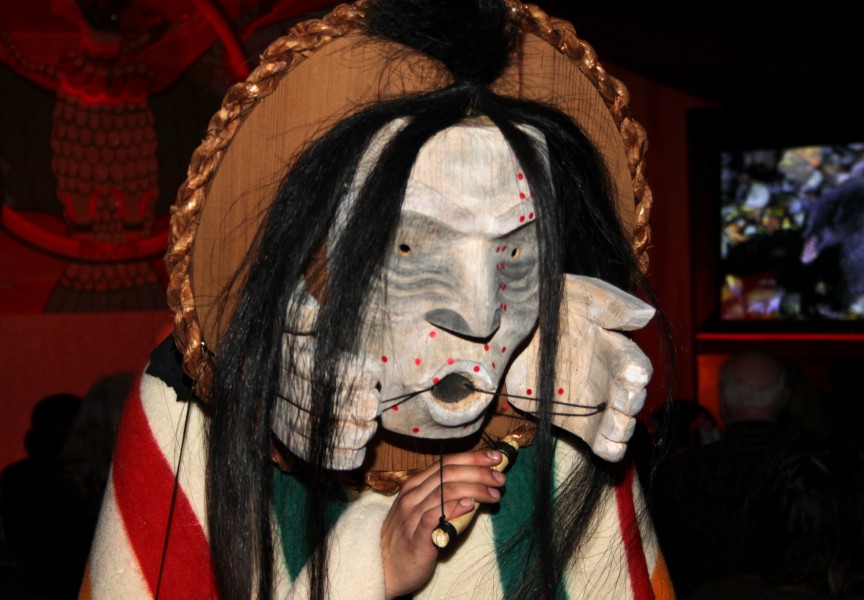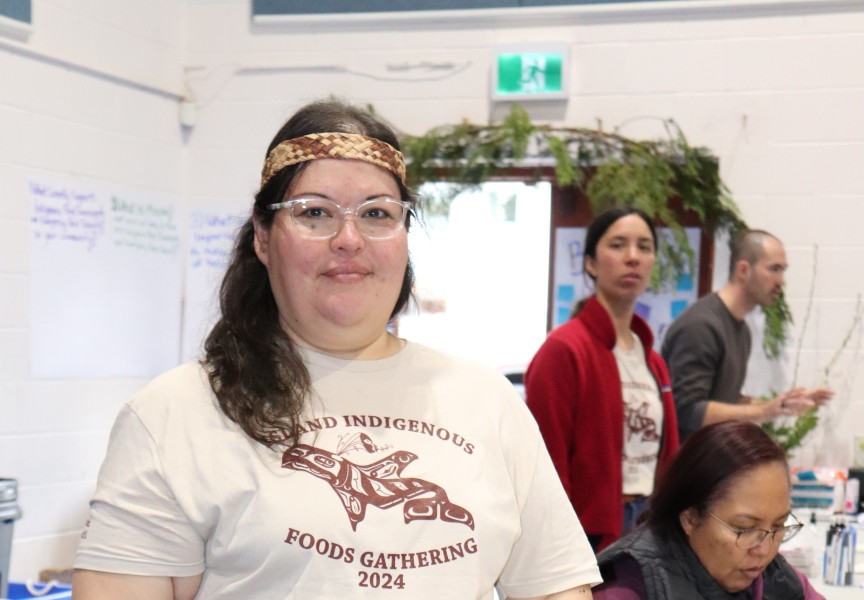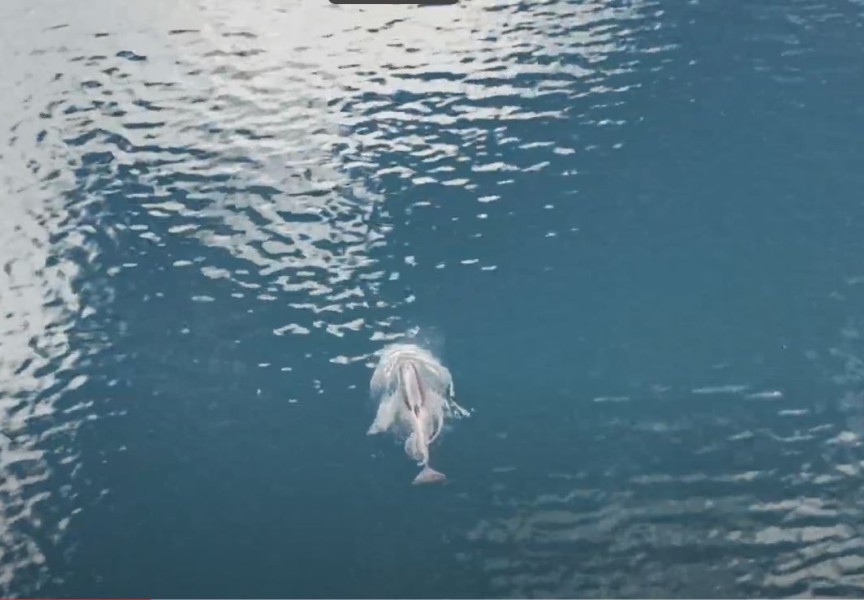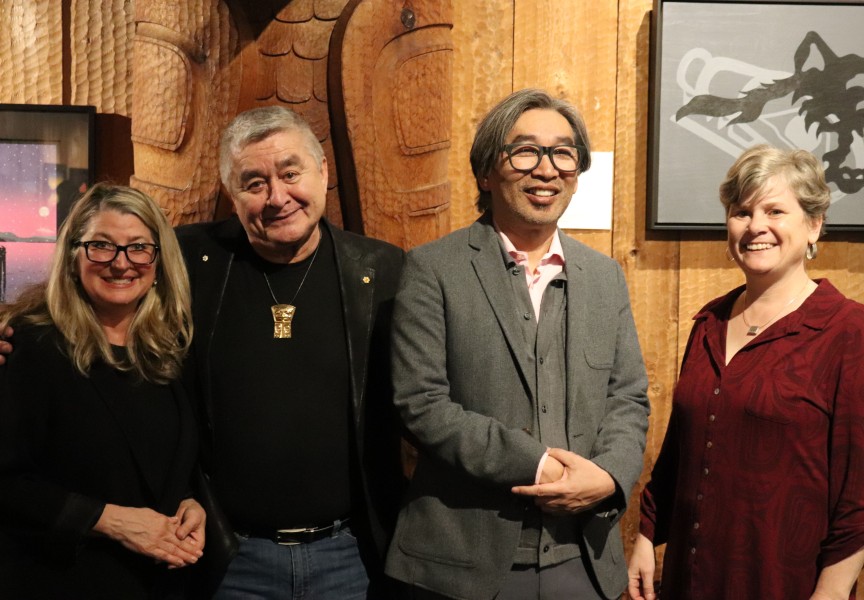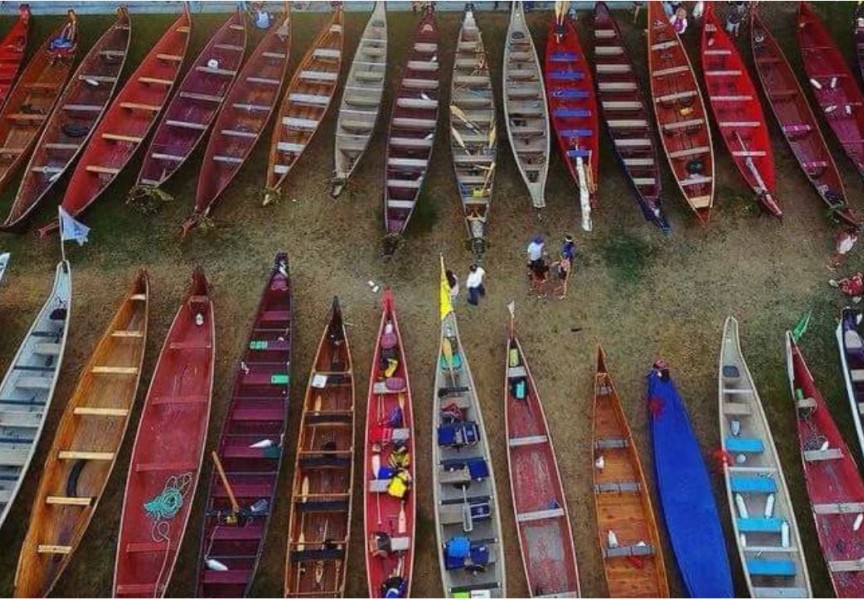Update: Feb. 19 at 9:09 a.m.
Five Nuu-chah-nulth Nations were back in the B.C. Court of Appeal (BCCA) last week defending their aboriginal rights to economic fisheries. This is the second time this case has been heard by the BCCA. The BCCA already upheld the original 2009 trial decision finding that five Nuu-chah-nulth Nations have aboriginal rights to fish and sell fish. Canada appealed that decision to the Supreme Court of Canada. The Supreme Court of Canada sent the case back to the BCCA to reconsider their decision in light of another decision (Lax Kw’alaams) of the Supreme Court.
More than 50 Nuu-chah-nulth Ha’wiih, Chiefs, fishers, muschim, and other supporters continued to show their support for Nuu-chah-nulth fishing rights on the third and final day of the hearings.
The day began with Matt Kirchner, part of the legal team representing the five Nuu-chah-nulth Nations, continuing submissions and responses to Canada, B.C., and the other interveners’ presentations.
Kirchner dealt effectively with B.C.’s argument that the trial Judge had misinterpreted Sappier, another legal decision by the Supreme Court of Canada (SCC). Kirchner also responded to the issue of having to prove an aboriginal right to each species harvested (not necessary). This matter was decided by the BCCA Panel during the previous appeal, and Lax Kw’alaams strengthens the previous decision of the BCCA.
Kirchner’s submissions continued with addressing the issue of defining of the aboriginal right, responding to Canada’s attempt to minimize the rights found for Nuu-chah-nulth Nations by the trial judge. This section generated several challenging questions from the BCCA Panel.
Kirchner concluded his submissions on behalf of the five Nations early in the afternoon session, continuing his answers to questions posed by the Panel about how Nuu-chah-nulth aboriginal rights could be defined. Following Kirchner’s submissions was the legal team representing the Saugeen and Chippewa Nations from Ontario, explaining their Nations’ interest in the case in support of the Nuu-chah-nulth fishing rights.
The hearing began to wrap up with Canada responding to four points raised by the legal team on behalf of the Nations, defending statements made either in Canada’s factum or in oral argument that had been challenged by the Nuu-chah-nulth legal team. Canada then turned over part of their response time to the lawyer representing the government of B.C. to respond to similar challenges levelled by the Nuu‑chah-nulth legal team.
The hearing concluded with the three Judge Panel reserving judgement, and informing the participants that they would be notified when the Panel had reached its decision with regard to Canada’s appeal. The BCCA Panel did not specify when their written decision would be available. For the previous appeal, the Panel released its decision within six months of the appeal hearing.
Update: Feb. 15 at 9:30 a.m.
Day two of hearing
Nuu-chah-nulth Ha’wiih, Chiefs, fishers, muschim, and other supporters filled the courtroom again on Day 2 of the B.C. Court of Appeal hearings. Nuu-chah-nulth are defending their aboriginal rights to economic fisheries.(see Day One summary below.) A mid-afternoon count had more than 100 supporters overflowing Court Room 60, which holds about 70 people.
Canada finished its submissions early into the second day of the hearing, repeating Canada’s assertion that at most the economic right to fish and sell fish should be a minor proportion of the Nations’ existing Food and Ceremonial rights.
The lawyer representing British Columbia was the first of two intervenors supporting Canada’s appeal. He argued that Judge Garson, who decided the case in BC Supreme Court, had made an error in applying the test of integrality that the Supreme Court of Canada further defined in Lax Kw’alaams (that the trade of fish was an integral and distinctive feature of pre-contact Nuu-chah-nulth society). The lawyer representing the BC Wildlife Federation and BC Seafood Alliance tried to identify process errors made by Garson at the original trial.
The legal team representing the five Nuu-chah-nulth Nations began their submissions just before the lunch break. Lawyer John Rich outlined the scope of the reconsideration hearing: though this hearing should not be reviewing (again) facts in evidence determined at trial, Canada and BC’s submissions required responses to clarify facts that, in some instances, Canada and BC are selectively using to bolster their arguments.
Lawyer Matt Kirchner provided specific examples of how Canada had ample opportunity to define the original pleadings (claims) at trial, and chose not to, but is now arguing that Garson made errors with respect to the pleadings of the Nations.
Matt also explained how Garson did thoroughly consider the evidence supporting the integral and distinctive nature of the economic trade of the Nations in her trial decision, effectively countering the arguments of the intervenor for B.C.
The hearings will continue this morning (Friday) at 10 a.m. Matt Kirchner will continue his submissions responding to other the arguments presented by Canada and B.C.
Lawyers representing the Saugeen and Chippewa Nations will follow with their submissions in support of Nuu-chah-nulth and their economic fisheries. As the appellant in the hearings, Canada has the opportunity to respond to all submissions prior to the close of the hearings Friday afternoon.
Day One Summary
Five Nuu-chah-nulth Nations are back at the B.C. Court of Appeal (BCCA) this week defending their aboriginal rights to economic fisheries. This is the second time this case has been heard by the BCCA.
The BCCA already upheld the original 2009 trial decision finding that five Nuu-chah-nulth Nations have aboriginal rights to fish and sell fish. Canada appealed that decision to the Supreme Court of Canada. The Supreme Court of Canada sent the case back to the BCCA to reconsider their decision in light of another decision (Lax Kw’alaams) of the Supreme Court.
Canada presented its arguments on day one of the three-day hearing. Canada began by stating they did not intend to reargue the findings of the original trial, but most of Canada’s presentation was very familiar to the large delegation of Nuu-chah-nulth Ha’wiih, members, and supporters that filled the courtroom.
Canada made most of the same arguments that they made at the previous appeal that was heard by the same panel of three Judges.
Canada will wrap up their presentations in on Day 2, today. The government of British Columbia and an alliance of the B.C. Wildlife Federation and B.C. Seafood Alliance are separate intervenors in the case.
After lawyers for these intervenors have made their presentations, the legal team representing the five Nuu‑chah-nulth Nations will make its submissions to the BCCA panel.
New to the case for this hearing are intervenors from the Saugeen and Chippewa Nations from Ontario. Their lawyers will follow the Nuu-chah-nulth legal team, likely on Day 3 (Friday). Chiefs and staff from the Chippewa Nation are attending the trial, adding their support to 70-plus Nuu-chah-nulth Ha’wiih, fishers, members, and supporters attending on Day 1 of the hearings.
The hearings are being heard in Courtroom 60 in the Vancouver Law Courts. The hearings start at 10 a.m. each day.
Related: http://www.hashilthsa.com/news/2011-05-18/nuu-chah-nulth-celebrate-appeals-court-decision
http://www.hashilthsa.com/archive/news/2012-08-07/letter-supports-first-nation-commercial-fisheries

